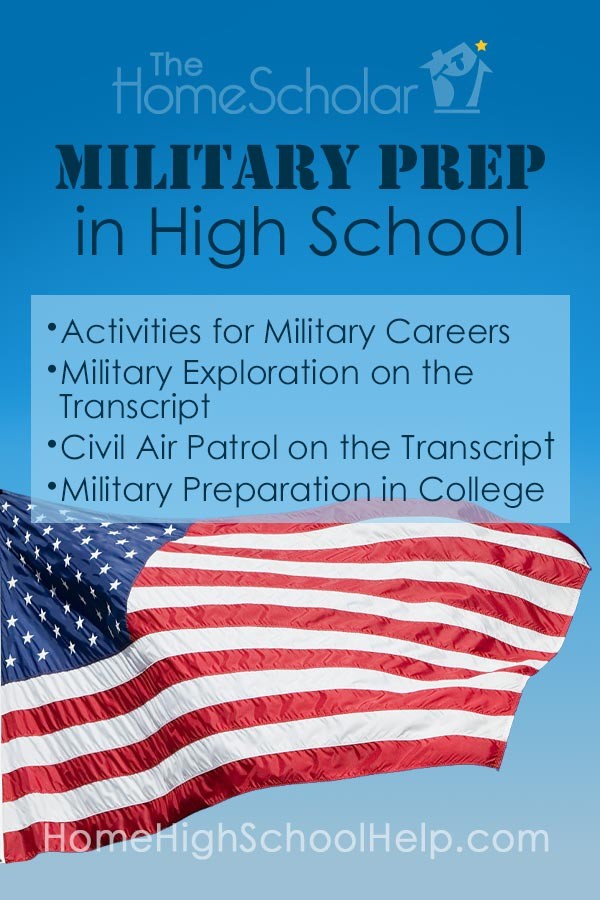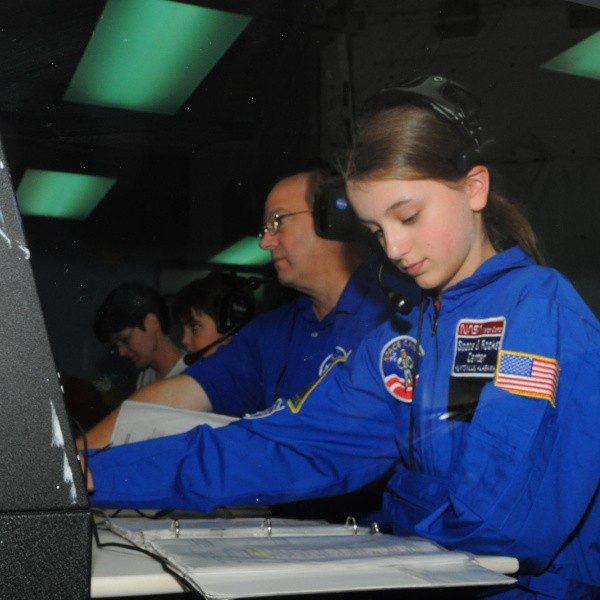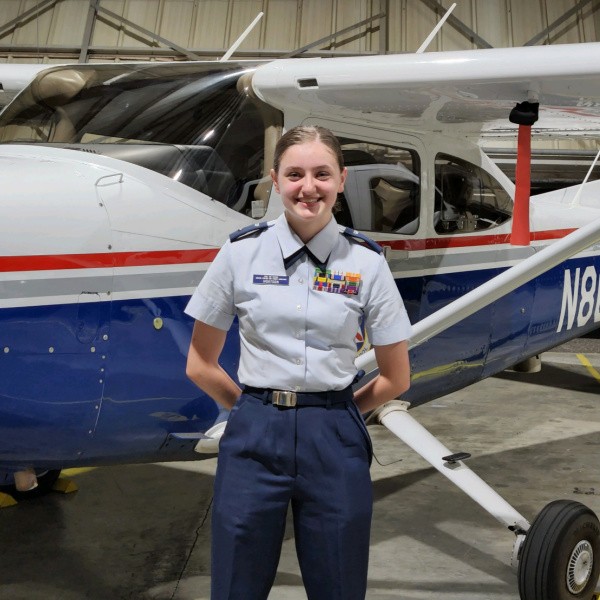There are some kids that would LOVE to serve our country, and want to start TODAY. There are some ways you can encourage that delight directed learning and vocational calling while they are still homeschooling. To decide if your child might be interested in the military, consider finding a high school group that funnels into the military, so your child can try it and see if it seems like a good career fit. Each branch of the military has a high school experience, so see what is available in your area. These are youth-oriented programs geared toward encouraging children to each branch of the military.
High School Activities for a Military Careers
Check out these options to see if they might be a good fit for your child. All of these programs emphasize life skills valuable for every student. Students can gain skills like leadership, confidence, and discipline, which are necessary to be successful in any career.
U.S. Army JROTC http://www.usarmyjrotc.com/
High school students focus on leadership and citizenship providing a great start in a career.
Civil Air Patrol – United States Air Force Auxiliary https://www.gocivilairpatrol.com/
CAP’s cadet program uses aviation as a cornerstone.
Sea Cadets – U.S. Naval Sea Cadet Corps https://www.seacadets.org/
The Naval Sea Cadet Corps senior program is for teens ages 13-17.
Young Marines https://youngmarines.com/
This is a youth education and service program for age 8 through high school.
There are other military experiences that can prepare for these kinds of careers as well.
Law Enforcement Exploring https://www.exploring.org/law-enforcement/
For teens 14-21 interested in a career in law enforcement, a personal awareness of the criminal justice system through training, practical experiences and other activities.
Scouting BSA (formerly Boy Scouts of America) https://www.scouting.org/
Military academies and careers love to see kids that achieve Eagle Scout within Boy Scouts of America, as it demonstrates leadership, citizenship, and personal fitness.
There are other organizations across the US that are similar to scouting. You may find alternatives in your local area. Many of these alternatives are affiliated with churches, like the Pathfinders Teen Leadership Training Program (Seventh Day Adventist) and Royal Rangers (Assemblies of God) for example.
Military Exploration on the Transcript
Because each child’s experience is unique, and each program is unique, it’s impossible for someone outside your home to tell you exactly what to put on the transcript. Homeschool parents can create a transcript with military exploration included. For clear instructions, download the free eBook How to Put Fabulous Fun on Your Homeschool Transcript: Convert Natural Learning into High School Credit.
The credit value is determined by hours spent. 120-180 hours or more per year is equivalent to one high school credit. The grade is determined by success, and if the student is successfully progressing, they get an A in the class. The class title is a variation of Occupational Education, or Career Exploration, or something more specific dependent on the program they enjoy. Think of each thing being learned as a “unit study” in the class. When I was in high school PE, we had a unit study on soccer, another on archery, another on track, and another on gymnastics. In the same way, homeschoolers can combine similar things into unit studies that all get included into one class. For grading criteria, then, consider each portion of the program as a “unit study” within the “class.” Each unit study would get a grade, just like each test in math gets a grade.
Some public-school kids do get credit for military exploration, and others don’t. Whether your local high school provides credit for the experience or not, as a homeschooler it’s your call about making it a class on the transcript. I definitely encourage you to include it on the activities list one way or the other. The Army equivalent is JR ROTC, and most high schools DO give credit for that. The Program Overview for Educators instructions from Civil Air Patrol program says ” The aerospace materials are often used in for-credit courses at the high school level and meet national standards.” It’s not somehow cheating if you DO put it on the transcript. It’s an option to consider, and you can make up your own mind.
Civil Air Patrol on the Transcript
Let me give an example of record keeping with Civil Air Patrol. Again, each child will have a different experience with extracurricular activities, so it’s impossible for someone outside your home to say exactly how Civil Air Patrol should be represented on your transcript. Every situation is so different! But I was helping a mom with her homeschool experience. Her student participated in many aspects of CAP for many hours a day and ended up with a few different credits. After carefully estimating hours and considering all experiences, this is how we put it on her child’s high school transcript.
1/2 credit Occupational Education: Aerospace Careers
Much of the time he was exploring different facets of aerospace careers, both military and non-military. This credit included everything he did that was about careers; the education time, the drills, the time spent experiencing careers, it all went into this class.
1 credit of PE: Physical Training
A lot of this child’s experience with Civil Air Patrol included physical fitness and exercise. This credit included everything that he did involving physical training, and physical tests. In addition, this child was doing 5K training, basketball and other PE stuff at home, to fill out the PE class to a full credit.
1 credit of Technology and Computer Sciences
This student was focusing on the computer science aspect of Civil Air Patrol, which included some work with CyberPatriots. This credit included everything that he was learning to prepare him for CyberPatriots, including Java, C++ and website development.
Military Preparation in College
As you are guiding your child through college preparation, do some research on the ROTC program. ROTC stands for “Reserve Officer Training Corps” – a college program offered at many universities that prepares young adults to become officers in the U.S. Military. In exchange for a paid college education and a guaranteed post-college career, cadets commit to serve in the Military after graduation, so don’t take this lightly, it’s serious business. ROTC representatives attend college fairs, so you can research this option as you are looking for colleges.
Learn more:
Students Serving our Country
My daughter earned an appointment to the Air Force Academy! And the backup plan of Embry-Riddle has offered a huge scholarship as well. Thank you for all the help crafting a way to put this adventure into words on her transcript and course descriptions. It has been an incredible journey.
From the very beginning decided she wanted to go to the Air Force Academy. I kept thinking it was one fleeting idea, except it wasn’t. She joined Civil Air Patrol when she was 12. Went to space camp and loved it. Survived her first encampment including a phone call where she told me, “If you were a real mom, you would pick me up.” She kept doing all kinds of CAP activities and learning how to speak in public, lead others, deal with lots of disappointments. She worked hard scholastically too, and got a 1390 SAT after a couple of tries.
As my daughter said, “Dreams can come true!”
-Karen H






